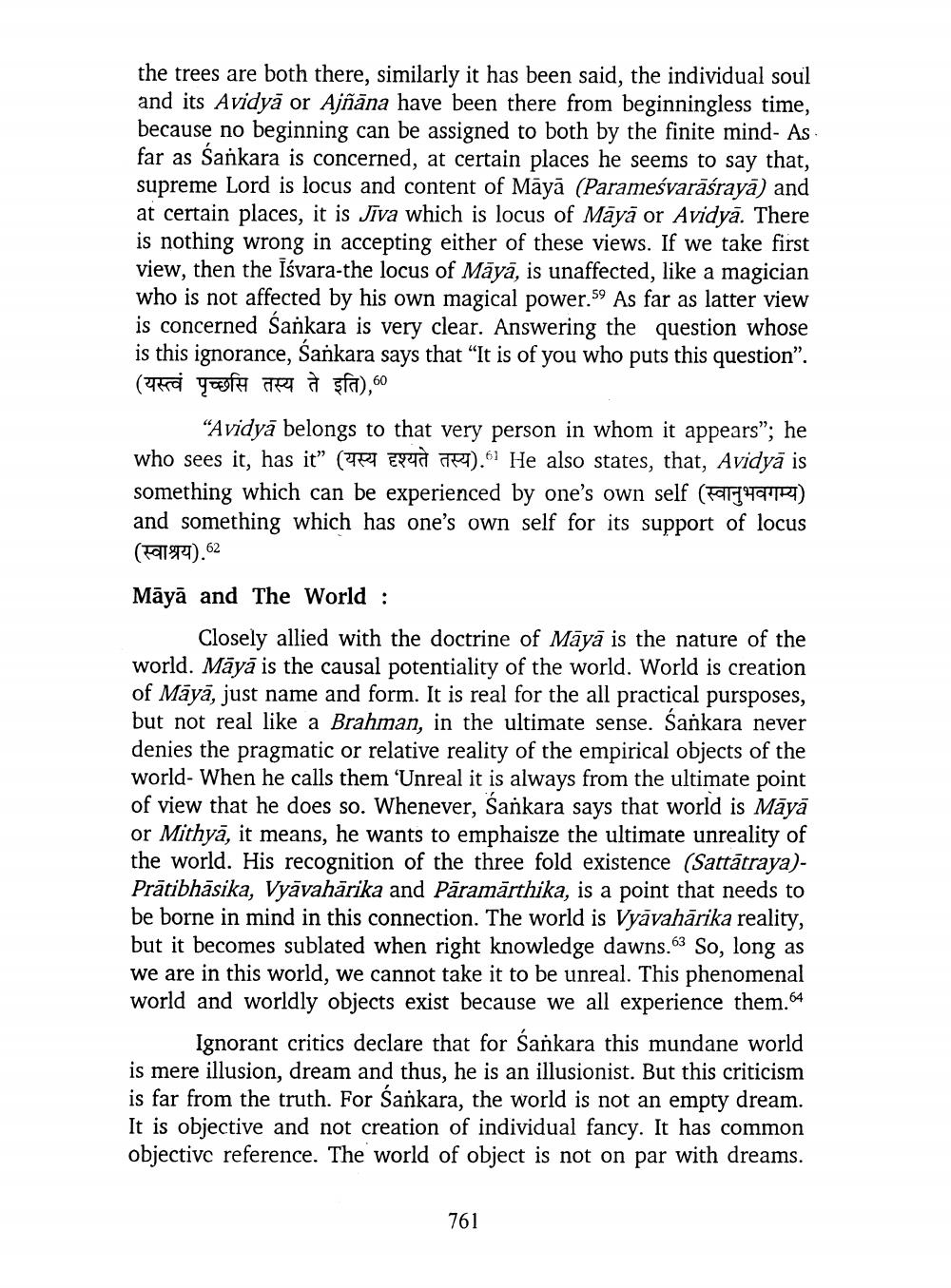________________
the trees are both there, similarly it has been said, the individual soul and its Avidyā or Ajñāna have been there from beginningless time, because no beginning can be assigned to both by the finite mind- As far as Sankara is concerned, at certain places he seems to say that, supreme Lord is locus and content of Māyā (Parameśvarāśraya) and at certain places, it is Jīva which is locus of Māyā or Avidyā. There is nothing wrong in accepting either of these views. If we take first view, then the Iśvara-the locus of Māyā, is unaffected, like a magician who is not affected by his own magical power. 59 As far as latter view is concerned Sankara is very clear. Answering the question whose is this ignorance, Sankara says that “It is of you who puts this question”. Card your page à çfa),60
“Avidyā belongs to that very person in whom it appears”; he who sees it, has it” (TB EP 21). He also states, that, Avidyā is something which can be experienced by one's own self (91449"R) and something which has one's own self for its support of locus (592).62
Māyā and The World :
Closely allied with the doctrine of Māyā is the nature of the world. Māyā is the causal potentiality of the world. World is creation of Māyā, just name and form. It is real for the all practical pursposes, but not real like a Brahman, in the ultimate sense. Šankara never denies the pragmatic or relative reality of the empirical objects of the world - When he calls them 'Unreal it is always from the ultimate point of view that he does so. Whenever, Sankara says that world is Māyā or Mithyā, it means, he wants to emphaisze the ultimate unreality of the world. His recognition of the three fold existence (Sattātraya)Prātibhāsika, Vyāvahārika and Pāramārthika, is a point that needs to be borne in mind in this connection. The world is Vyāvahārika reality, but it becomes sublated when right knowledge dawns.63 So, long as we are in this world, we cannot take it to be unreal. This phenomenal world and worldly objects exist because we all experience them.64
Ignorant critics declare that for Sankara this mundane world is mere illusion, dream and thus, he is an illusionist. But this criticism is far from the truth. For Sankara, the world is not an empty dream. It is objective and not creation of individual fancy. It has common objective reference. The world of object is not on par with dreams.
761




